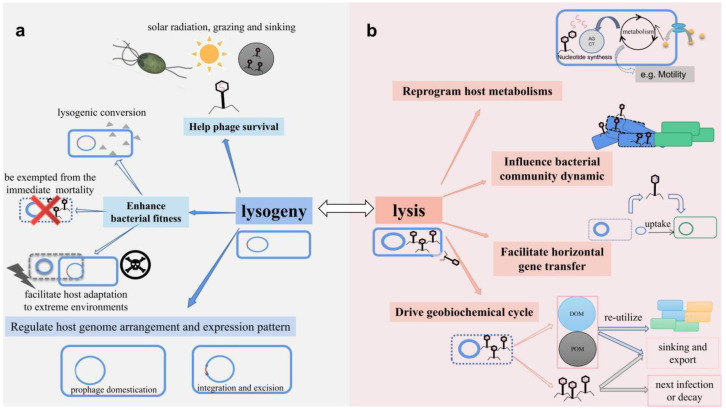Figure 2.
Potential ecological implications of lysogenic/lytic transition. (a) Potential ecological implications of lytic to lysogenic cycle transition. The transition protects free phages from various stresses such as solar radiation, grazing, and sinking by attaching to marine aggregates. Lysogeny also enhances bacterial fitness through lysogeny conversion, which averts immediate mortality and facilitates host adaptation to extreme environments. Moreover, lysogeny regulates the host’s genome arrangement and expression pattern through integration and excision of prophages. The red cross symbol represents that hosts are exempted from immediate phage-mediated lysis, while the ray and skull symbols represent the harsh environmental conditions. (b) Potential ecological implications of lysogenic to lytic cycle transition. Prophages entering the lytic cycle reprogram the host’s metabolism to favor phage replication, influence the bacterial community structure through phage-mediated host mortality, facilitate horizontal gene transfer, and drive the biogeochemical cycle.

